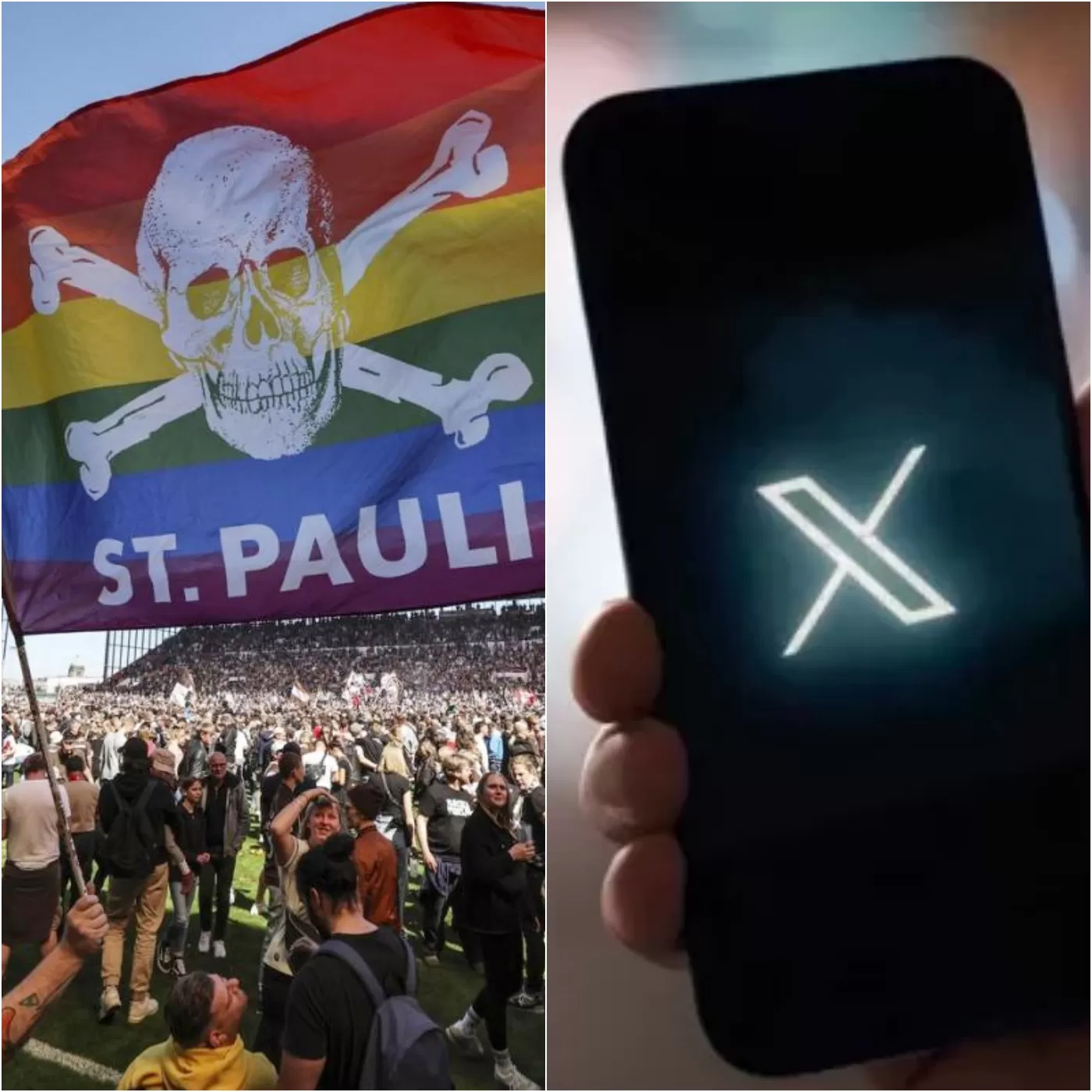St. Pauli Announced They’re Leaving the Social Media Platform X 📵: A Bold Move in the World of Sports and Media

In a groundbreaking decision that has sent ripples through the sports and media world, St. Pauli, the beloved Bundesliga club, has announced they are officially leaving the social media platform X (formerly known as Twitter). The club, known for its progressive values and vocal stance on social justice issues, has become one of the first professional sports teams to make such a bold move, citing concerns over the platform’s direction and its ownership under Elon Musk.
The club’s departure from X is not just a symbolic gesture; it marks a pivotal moment in the ongoing conversation about social media platforms and their impact on sports organizations. St. Pauli’s decision to exit X comes as part of their ongoing commitment to fostering a positive, inclusive online community that aligns with their values. The club’s official statement on the matter emphasized their desire to build a safer, more constructive environment for both their fans and the broader public.
The Reasons Behind the Move
In a statement released by the club’s leadership, St. Pauli outlined several reasons for their decision. The club expressed deep concerns over the increasing presence of hate speech, misinformation, and a lack of moderation on X, all of which have intensified under Musk’s ownership. “We believe in fostering a respectful, inclusive environment for all our fans and community members,” the statement read. “Unfortunately, recent changes at X have compromised this space, and we no longer feel that it aligns with our core values.”
St. Pauli has long been recognized for its progressive stance in the football world. The club is celebrated for its efforts to combat racism, sexism, and homophobia, and it often leads campaigns to support marginalized communities. This latest move reinforces their position as one of the most socially conscious football teams in the world.

X and the Changing Landscape of Social Media
The departure of St. Pauli is particularly notable because the Bundesliga club is one of the first major professional sports teams to distance themselves from Elon Musk’s version of X. The platform, which Musk acquired in 2022, has undergone several dramatic changes, including a shift in content moderation policies, increased reliance on paid subscriptions, and a surge in controversial, unfiltered content.
As a result, some organizations and public figures have raised concerns about the platform’s evolving role in shaping public discourse, especially when it comes to sensitive topics like politics, social justice, and media coverage of athletes. St. Pauli, with its diverse fanbase and commitment to social justice, decided that the atmosphere on X no longer aligned with its principles.
The Guardian Follows Suit
St. Pauli’s departure from X was followed by a significant move from The Guardian, one of the UK’s most respected newspapers. The publication also announced that it would be leaving the platform, citing similar concerns about the platform’s direction and content moderation practices.
The decision by The Guardian to abandon X adds further weight to the ongoing conversation about the future of the platform and its role in the media landscape. In their statement, the newspaper emphasized their commitment to maintaining the integrity of their reporting and ensuring that their content is not associated with a platform that they felt had become increasingly problematic.
“The rise of harmful content and the weakening of moderation policies on X made it clear to us that it was no longer a space conducive to meaningful journalism,” said The Guardian’s statement. “As a global news organization, we must uphold the values of trust and accuracy, and this is no longer possible on a platform that prioritizes sensationalism over responsible discourse.”
A Turning Point for Social Media?
The moves by St. Pauli and The Guardian could be part of a larger trend in which public figures and organizations reevaluate their presence on social media platforms, particularly in the wake of changing policies and ownership. As digital spaces evolve, the lines between social media, journalism, and entertainment are becoming increasingly blurred.
While Elon Musk’s leadership has brought X a significant user base, the controversy surrounding his changes to the platform continues to grow. With increasing reports of misinformation, hate speech, and harassment, many individuals and organizations are now looking for alternative ways to engage with their audiences without compromising their values.
What’s Next for St. Pauli?
For St. Pauli, this decision signals a shift toward more controlled and positive platforms for engaging with their supporters. The club has indicated that they will continue to connect with fans through other social media channels and will focus on amplifying their message through direct engagement and community-driven platforms.
Their decision also paves the way for other clubs and organizations to evaluate their social media strategies in light of the growing challenges and scrutiny surrounding online platforms.
The decision by St. Pauli to leave X is more than just a move away from a social media platform. It represents a statement about the power of social responsibility and ethical engagement in today’s interconnected world. With increasing concerns about online safety, misinformation, and harmful content, St. Pauli is standing firm in its commitment to values that prioritize respect, inclusion, and positivity.
As more public figures and organizations follow suit, the question remains: What will the future hold for social media, and how will platforms like X evolve to address these growing concerns? For now, St. Pauli and The Guardian are leading the charge in holding platforms accountable for the spaces they create.




